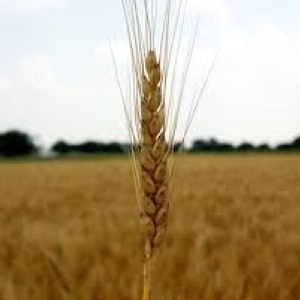
Researchers at the University of Gothenburg, Sweden, have published a study in the journal Global Change Biology claiming that rising levels of atmospheric carbon dioxide have a negative impact on the protein content of wheat grain and thus its nutritional quality.
The researchers summarised the way in which experimentally elevated carbon dioxide levels affect the harvest index and protein content of wheat. The study includes 43 field experiments with 17 different varieties of wheat, carried out in ten countries across four continents.
Abstract
Although it is established that there exist potential trade-offs between grain yield and grain quality in wheat exposed to elevated carbon dioxide (CO2) and ozone (O3), their underlying causes remain poorly explored. To investigate the processes affecting grain quality under altered CO2 and O3, we analysed 57 experiments with CO2 or O3 exposure in different exposure systems. The study covered 24 cultivars studied in 112 experimental treatments from 11 countries. A significant growth dilution effect on grain protein was found: a change in grain yield of 10% by O3 was associated with a change in grain protein yield of 8.1% (R2 = 0.96), whereas a change in yield effect of 10% by CO2was linked to a change in grain protein yield effect of 7.5% (R2 = 0.74). Superimposed on this effect, elevated CO2, but not O3, had a significant negative effect on grain protein yield also in the absence of effects on grain yield, indicating that there exists a process by whichCO2 restricts grain protein accumulation, which is absent for O3.
Grain mass, another quality trait, was more strongly affected by O3 than grain number, whereas the opposite was true for CO2. Harvest index was strongly and negatively influenced by O3, but was unaffected byCO2. We conclude that yield vs. protein trade-offs for wheat in response to CO2 and O3 are constrained by close relationships between effects on grain biomass and less than proportional effects on grain protein. An important and novel finding was that elevated CO2 has a direct negative effect on grain protein accumulation independent of the yield effect, supporting recent evidence of CO2-induced impairment of nitrate uptake/assimilation. Finally, our results demonstrated that processes underlying responses of grain yield vs. quality trade-offs are very different in wheat exposed to elevated O3 compared with elevated CO2.
Reference
Pleijel, H., Uddling, J. Yield vs. Quality trade-offs for wheat in response to carbon dioxide and ozone. Global Change Biology, 2012; 18 (2): 596 DOI:10.1111/j.1365-2486.2011.2489.x
To access the study, click here.



Post a new comment »